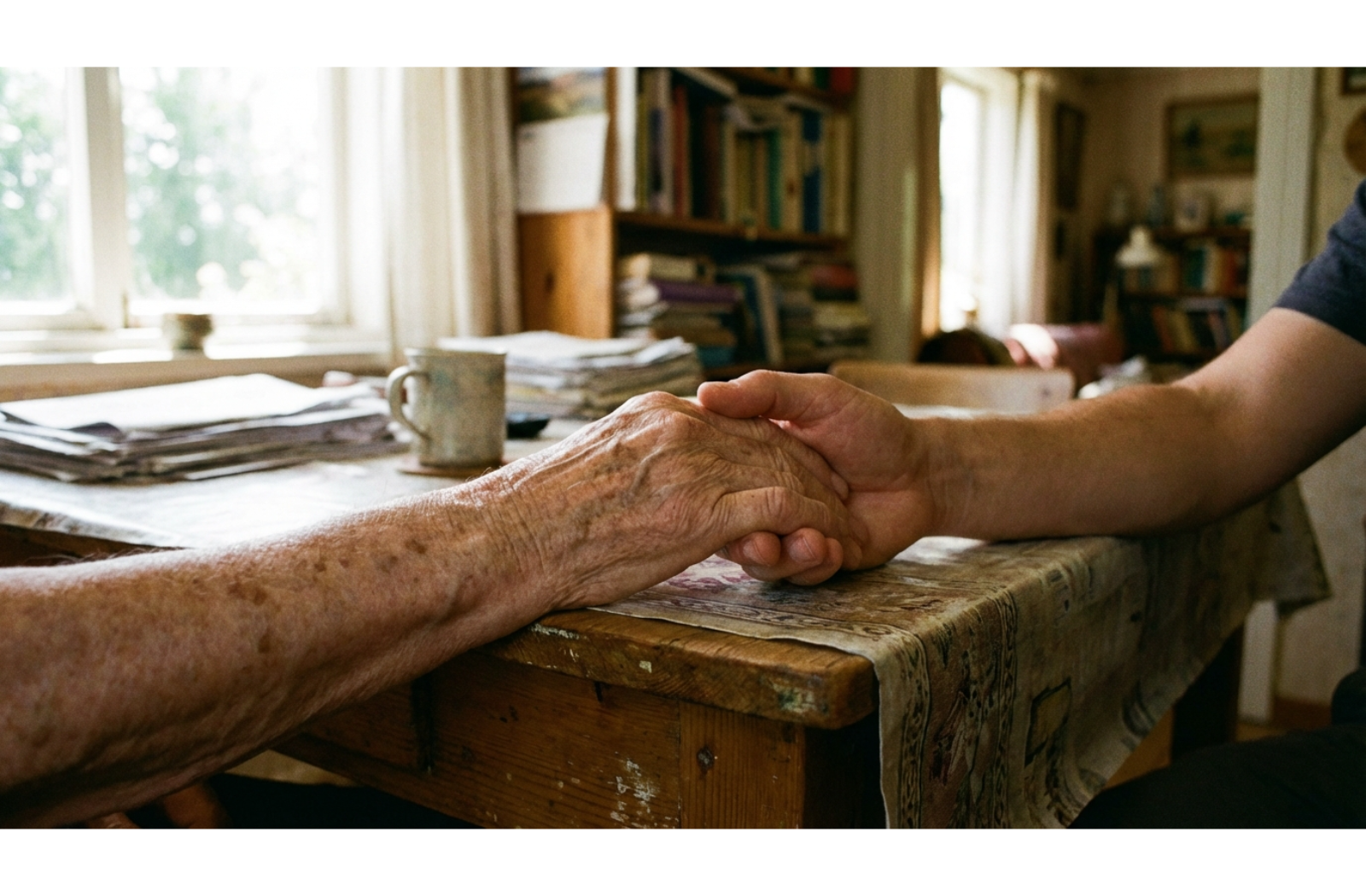Everything to Know About Assisted Living for Dementia
- Posted on
- By Mira Vie Senior Living

Key Takeaways
- Assisted living for dementia is commonly called memory care or memory support. It provides safety, structure, and compassionate support.
- Specialized care plans balance independence with attentive oversight.
- Enriching programs help residents stay active, engaged, and socially connected.
- Families gain peace of mind knowing trained professionals are available around the clock.
- Choosing assisted living is about creating the right environment for dignity and joy.
Caring for a loved one with dementia often raises questions about when additional support may be needed. Assisted living often seems like a reliable choice, but for many people with dementia, memory support is actually the preferred choice. Memory support offers a safe, structured environment where older adults with Alzheimer’s disease or other forms of dementia receive compassionate guidance while continuing to enjoy daily moments of connection and meaning.
These communities are designed with dementia-specific needs in mind: trained staff, secure spaces, and daily routines that ease stress and create comfort. For families, this support brings relief from the demands of caregiving and reassurance that their loved one is surrounded by professionals who understand their unique challenges.
What Is Dementia?
Dementia is an umbrella term used to describe a decline in memory, reasoning, and behavior that interferes with daily life. It is not a single disease, but a collection of symptoms that can be linked to several underlying conditions, including Alzheimer’s disease, vascular changes in the brain, or other neurological disorders. These changes may start subtly but often progress over time, eventually making it difficult for individuals to manage daily routines and maintain independence.
While there is no guaranteed way to prevent dementia, research suggests that lifestyle choices can make a meaningful difference. Regular physical activity, balanced nutrition, mental stimulation, quality sleep, and strong social connections may help reduce risk factors and potentially delay the onset or progression of symptoms.
Common Types of Dementia
- Alzheimer’s disease: The most common form, leading to progressive memory loss and confusion.
- Vascular dementia: Caused by reduced blood flow to the brain, often after strokes.
- Lewy body dementia: Involves protein deposits in the brain, affecting movement, alertness, and memory.
- Frontotemporal dementia: Impacts personality, judgment, and language abilities.
- Mixed dementia: When more than one type is present, such as Alzheimer’s with vascular dementia.
Understanding the type of dementia helps families anticipate care needs and highlights the value of specialized environments.
Does Everyone with Dementia Need Assisted Living or Memory Support?
Not everyone with dementia needs support right away. The timing depends on symptoms, health, and the level of support available at home.
Signs It May Be Time to Consider Specialized Care
- Daily care feels overwhelming: Regular help is needed with bathing, dressing, or meals.
- Safety concerns arise: Wandering, falls, or medication errors increase.
- Medical needs grow: Monitoring and professional oversight are required.
- Isolation becomes an issue: Social withdrawal or loss of engagement is noticeable.
- Family caregivers feel burned out: Stress and fatigue affect their own health.
Recognizing these signs helps families make proactive choices that support both their loved one and themselves.
How Does Assisted Living for Dementia Differ from Memory Support?
Families often wonder about the difference between assisted living and memory support. Both provide daily support, but memory support adds layers of structure and security that don’t always come with assisted living.
Key Distinctions
- Training: Staff in memory support receive specific education in dementia behaviors and support strategies.
- Environment: Memory support spaces are simplified for easy navigation and designed to reduce disorientation.
- Programming: Daily routines in memory support focus on consistency, calm, and cognitive stimulation.
This approach combines general assisted living support with specialized oversight that meets the unique needs of those with dementia.
What Daily Life Looks Like in Memory Support Communities
A typical day balances familiar routines with meaningful activities. Structure reduces stress, while programs encourage joy and engagement.
Common Features of Daily Life
- Morning routines: Nutritious meals, light stretching, and conversation.
- Daytime enrichment: Art, music, exercise, or time in secure outdoor spaces.
- Supportive dining: Calm mealtimes with assistance available as needed.
- Compassionate guidance: Staff help with personal care and navigation throughout the day.
This rhythm ensures residents feel comfortable, capable, and part of a caring community.
Why Do Safety and Structure Matter in Dementia Care?
For those living with dementia, even simple tasks can feel overwhelming. Safety and structure are essential to provide reassurance and stability.
How Communities Support Safety
- Secure design: Clear signage, enclosed courtyards, and simple layouts reduce confusion.
- 24/7 staff presence: Trained caregivers monitor health and provide immediate assistance.
- Medication oversight: Prevents errors and supports health management.
Together, these measures foster both peace of mind and dignity.
What Programs and Activities Are Offered?
Programming in assisted living for dementia focuses on emotional well-being, social connection, and cognitive stimulation.
Examples of Dementia-Friendly Activities
- Music therapy: Stimulates long-term memory and emotional comfort.
- Art workshops: Encourage creativity and expression.
- Gentle exercise classes: Improve balance and mobility.
- Reminiscence sessions: Spark conversation through stories and familiar objects.
These experiences do more than pass time—they foster purpose, confidence, and joy.
How Families Benefit from Dementia-Assisted Living
The transition can be challenging, but assisted living often strengthens family relationships by relieving caregiving burdens. Families benefit from the following when their loved ones are living in assisted living:
- Peace of mind: Professionals manage safety and daily needs.
- Better relationships: Families can focus on quality time instead of constant tasks.
- Ongoing connection: Support groups and community updates keep families involved.
Families gain reassurance while loved ones receive consistent, compassionate support.
What to Look for in a Dementia-Assisted Living Community
Choosing the right community takes careful thought. Touring a location and asking questions can help families make confident decisions.
Key Considerations
- Expert staff: Training in dementia care techniques.
- Secure setting: Safe, enclosed outdoor areas and clear layouts.
- Engagement opportunities: A robust calendar of programs.
- Personalized care plans: Support tailored to each resident.
- Family involvement: Transparent communication and updates.
Observing daily life often provides the clearest picture of whether a community feels right.
Finding the Right Support for Dementia
Dementia may change how someone interacts with the world, but it doesn’t diminish their need for dignity, belonging, and connection. Memory support balances structure and compassion, helping residents feel secure while still experiencing joy. Families can benefit too, knowing their loved one is cared for with respect and expertise.
At Mira Vie Senior Living, we embrace the “Viva La Vie” philosophy—celebrating life at every stage. Our communities provide dementia-focused assisted living with compassionate staff, secure spaces, and engaging programs that encourage residents to thrive.
Our senior living communities focus on personalized attention, comprehensive care, and proactive health monitoring to help our residents thrive. Contact us today to find out how we can make a difference.
Related Articles

Understanding Various Types of Assisted Living Contracts
Key Takeaways Senior living communities offer several contract types, including those with large entrance payments